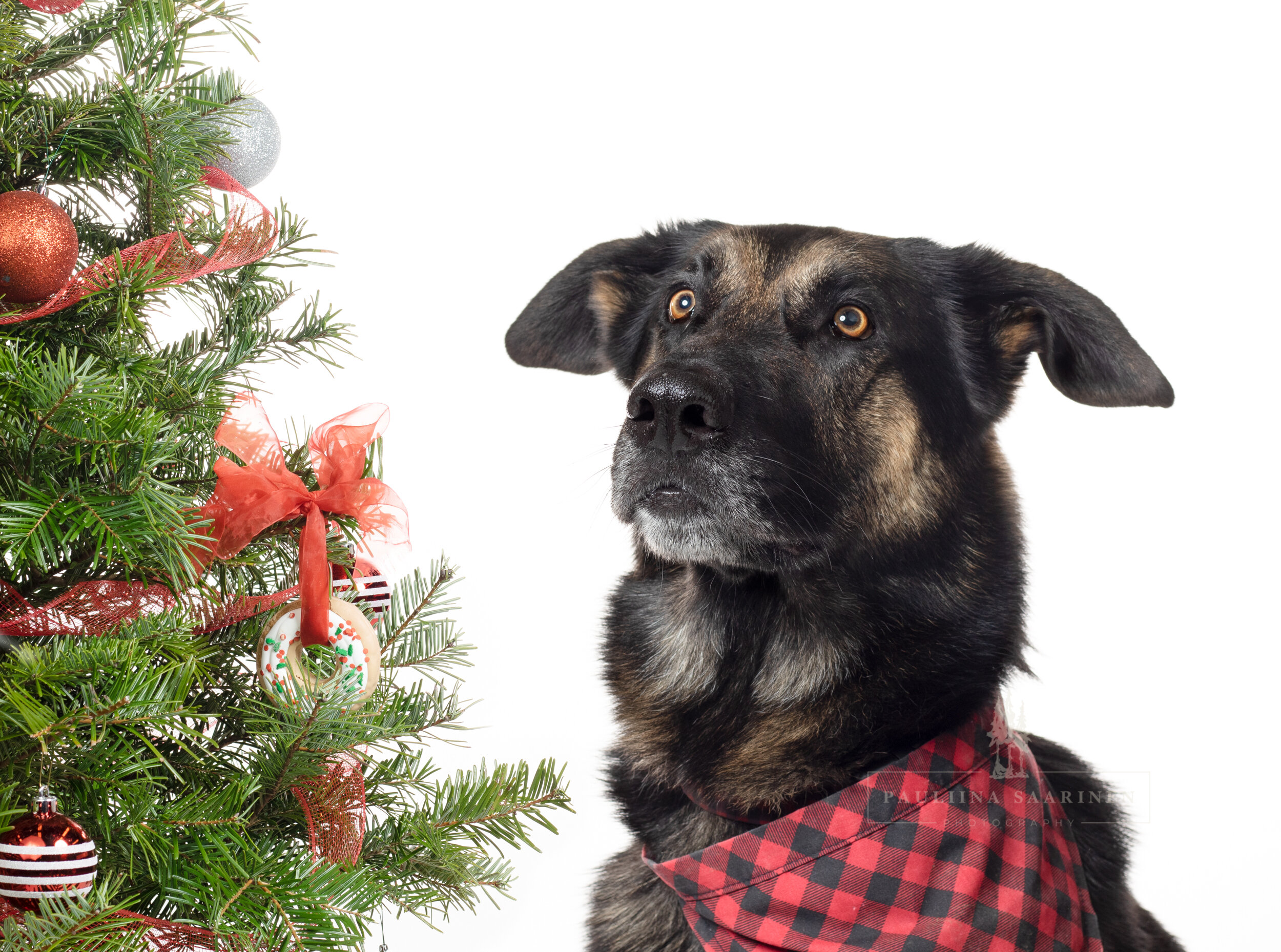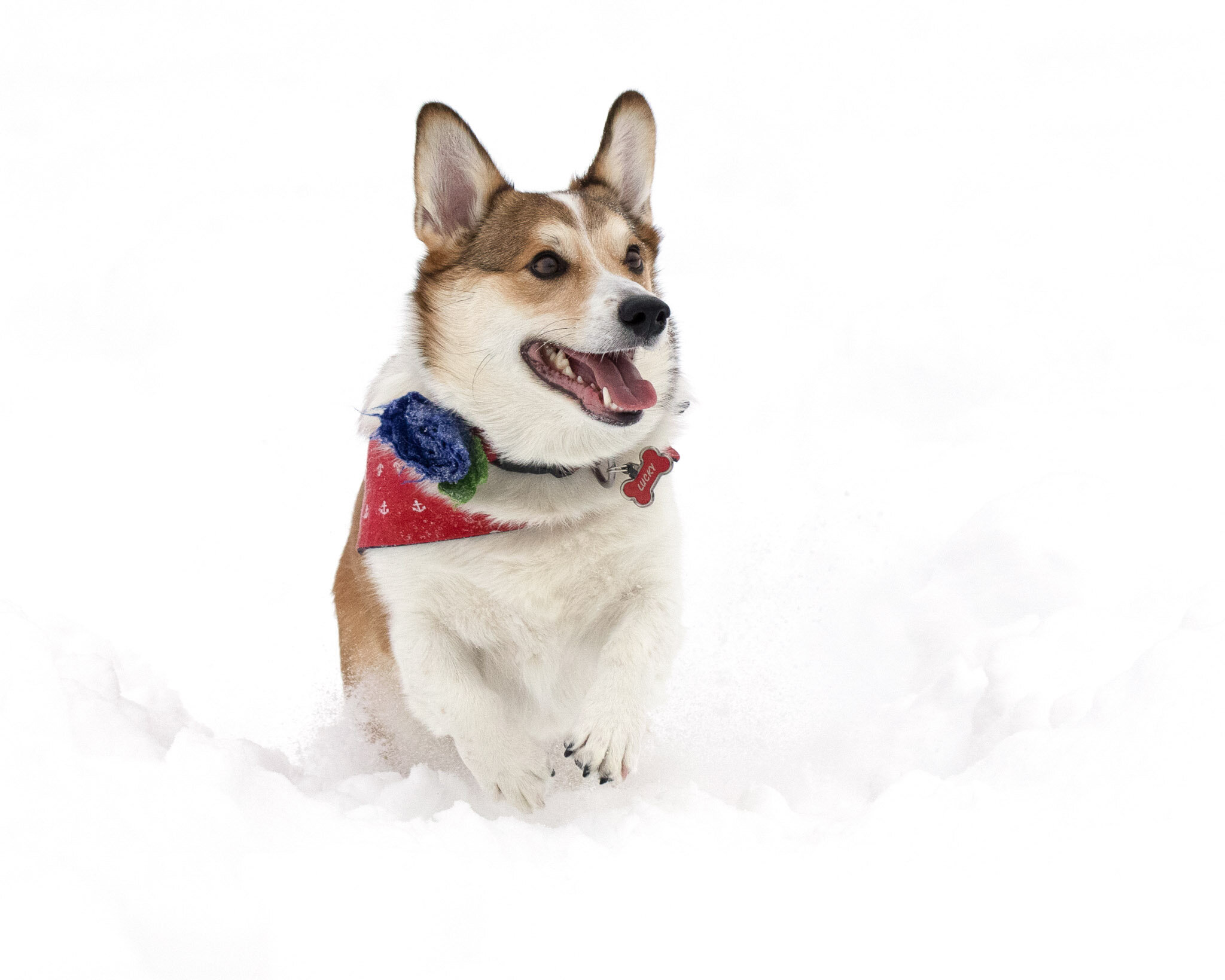When Woof ate a bag of chocolate shavings...
KEEP YOUR PETS SAFE DURING THE HOLIDAYS
Woof’n Sheep’s Clothin’ , Woof for short, was one of the five Bedlington Terriers that I have owned over the years. How I wish that I had better images of him! This is a great reminder for everyone to have their pets professionally photographed. Cell phone snapshots just aren’t good enough. Forgive my shameless self-promotion!
The bag of Callebaut chocolate shavings intended as a Christmas present for my friend was licked clean right to the bottom. The offender was easy to spot; my Bedlington terrier Woof had a chocolatey muzzle up to his eyes. Woof, a true food connoisseur, had found the shavings in one of the bags. Oh my, what a horrible mistake on my part to leave the shopping in the car with the dogs unsupervised… (the story continues below)
It’s hard to foresee all the possible ways our animals, puppies and kittens in particular, can get into trouble. During the prep for holidays, everyone is busy and mistakes happen, which can prove to be very serious, even fatal in some cases. Here’s a list of common dangers that might lurk at home during the holiday season.
FOODS TOXIC TO DOGS
Alcohol - intoxication, lack of coordination, trouble breathing, abnormal acidity, potentially coma, death
Apple seeds - release cyanide when digested
Cooked bones - splinter easily when chewed causing damage to the gut, even perforation. Blockage is also possible due to large enough bone pieces
Candy and chewing gum - often contains xylitol which can cause release of insulin, kidney failure, even death
Chocolate - toxicity causing panting, vomiting, diarrhea, damage to heart and nervous system
Coffee - potential death in dangerous quantities
Raw salmon and trout - can be fatal if the fish is infected with a certain parasite
Garlic, chives and other onions, onion powder - often in human foods, such as packaged meat products and baby foods. Causes anemia and damage to red blood cells
Grapes and raisins - contain a toxin that can cause liver damage and kidney failure
Hops (in beer) - panting, increased heart rate, fever, seizures, even death
Macademia nuts - contains a toxin causing weakness, panting, swollen limbs and tremors and possible damage to the digestive, nervous and muscle systems
Marijuana and cannabis-infused edibles - very attractive to dogs and can affect the nervous system and heart rate as well as cause seizures, coma and even death
Shelled nuts - may cause blockage
Persimmons, peaches and plums - their pits are a choking hazard and seeds can be toxic
Tobacco - nicotine damages the digestive and nervous systems, increases heart rate, loss of consciousness and ultimately cause death
Yeast - on its own or in dough causing gas and discomfort. Too much of it could rupture the stomach and intestines
FOODS TOXIC TO CATS
Alcohol - intoxication, lack of coordination, trouble breathing, abnormal acidity, even coma or death
Chocolate - toxicity causes arrhythmia, muscle tremors and seizures
Coffee, tea, energy drinks - restlessness, rapid breathing, heart palpitations, muscles tremors
Canned tuna for humans - often packed in brine (excess salt) or oil
Milk, cheese and other dairy products - cats don't tolerate dairy products very well and can become lactose intolerant. Affected cats can vomit and have diarrhea.
Meat products for humans - often contain onion powder which can cause anemia and damage to red blood cells
If you suspect that your pet has ingested something toxic, call your veterinarian or emergency clinic immediately. Time of starting treatment is essential and can make a difference between life and death.
PLANTS TO WATCH OUT FOR
Holiday plants such as mistletoe, holly, snowdrops, lilies and amaryllis plants are bad news for pets. Contrary to popular belief, poinsettias are not poisonous to pets or people but can cause vomiting and irritations in the mouth and stomach when eaten.
CHRISTMAS ORNAMENTS AND TREES
Decorated Christmas trees in the house are sure to perk the interest of curious cats and dogs. Keep these tips in mind when decking the halls for Christmas.
Chewing of Christmas tree branches can cause stomach upsets and irritations in the mouth.
The water in the reservoir under the tree contains fertilizers and should not be ingested.
Decorative pine cones can be a choking hazard for pets.
Ensure the tree is well-secured and choose ornaments that don’t break and have loose parts that pets can swallow.
Use string instead of hooks to hang ornaments.
Avoid decorating with tinsel or angel hair as they can end up in pets’ stomach and intestines potentially causing various issues.
Hide cords for lights to make them inaccessible to pets who like to chew things.
NEW YEARS’ CELEBRATIONS
Fireworks, fun for us but a nightmare for animals. Prepare for the night in advance to keep your frightened pets safe during the celebrations.
Talk to your vet about options to calm your pet's frayed nerves.
Talk to your neighbours and ask for advance notice of fireworks. This will give you time to get your pets indoors.
If outside, keep your pet leashed or, even better, harnessed. Make sure your pet can’t pull its head through the collar.
Make sure your pet carries tags with current infomation AND has a registered microchip or tattoo. Register your pet with the BC Pet Registry which is traceable internationally via the American Animal Hospital Association’s pet microchip lookup.
Going back to Woof’s chocolate feast
Luckily for us, we were at the vet’s office within minutes. It was a simple numbers game; we knew exactly what chocolate (it was milk chocolate) and how much he ate, and we also knew his weight. A quick calculation by the vet revealed that he would be fine, perhaps a bit hyper and nauseous for a time. There was no need for stomach pumping. It would have been a different story, had he eaten that quantity of dark chocolate. Lesson learned!
Have a safe holiday with your furry family!











Create lasting memories with fine art pet photography on Vancouver Island, BC — capturing the bond between children and their beloved dogs.